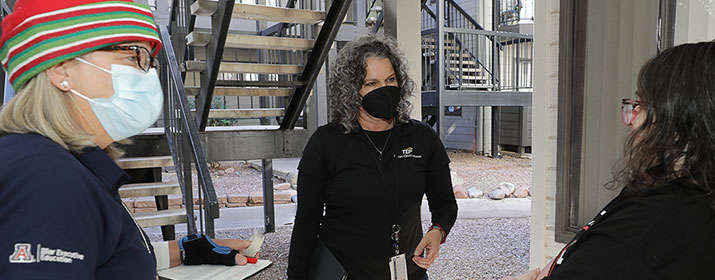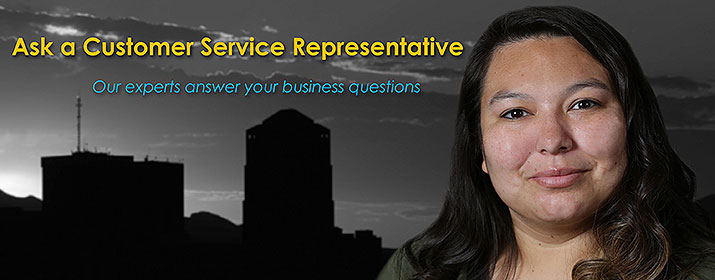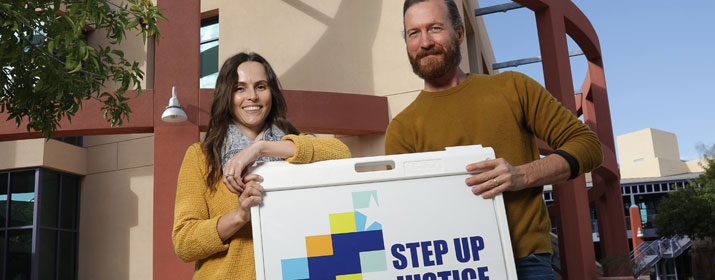
Opportunity is knocking – literally – as TEP employees spread the word about $36 million in federal funding that’s available to help renters who are behind on their utility bills.
The Arizona Department of Economic Security is partnering with TEP and other utilities to distribute the funding, which can be used to pay past due utility bills for income-eligible renters impacted by the pandemic. The funds were provided through the Emergency Rental Assistance (ERA) program included in a March 2021 federal pandemic relief package.
TEP and sister company UniSource Energy Services have promoted the program broadly through emails, newsletters, social media, bill inserts, letters home, direct phone calls and information shared through partnering agencies.
But as our Customer Care team watched applications come in, they realized they’d have to take a step further to reach those most in need. “Some people don’t answer their phone and they don’t open email. So we started brainstorming the avenues we could pursue to reach them,” recalled Cathy Bradley, who is leading the project
Enter the “warrior knockers.”
Since October, TEP employees have visited apartment complexes where many residents have fallen behind on their electric bills. The employees travel in pairs, wear face coverings, keep physical distance and never enter residences.
“It’s a win-win all around. It doesn’t happen very often when you get to knock on a door and offer a solution to someone who is down and out,” Bradley said.
Customer Care Supervisor Maria Sherfield has seen tears well up in customers’ eyes. She’s seen the worried faces of children in the background soften with their parents’ reassurance that help is coming. “Yes, it may be tiring, and I might huff and puff going up all those stairs, but there’s nothing else that compares to that feeling that says, ‘I am out here doing the right thing and making a difference for someone else.’”
“It fills me with pride to work for a company that goes above and beyond to make sure our customers get help when they need it the most.”
Customer Advocate Michele Estavillo, who leads the employee-led low-income task force, said the outreach effort added a new dimension to her connection with customers.
In one of her outings in early January, a woman answered the door, reluctantly, believing the team was there to cut her service. Instead, Estavillo told her federal funding might be available to help. The woman, a single mother, began crying.
Another customer, a man who said he hadn’t been able to get a job in more than a year, was being evicted the next day. Estavillo helped him get signed up for emergency rental assistance.
“It makes your heart feel good when you can help someone,” she said. “They don’t know about the resources that are available to them. This is the best way to show that we care about our customers. We’re not some big utility company in a big building looking at numbers and dollars. That’s not who we are.”






